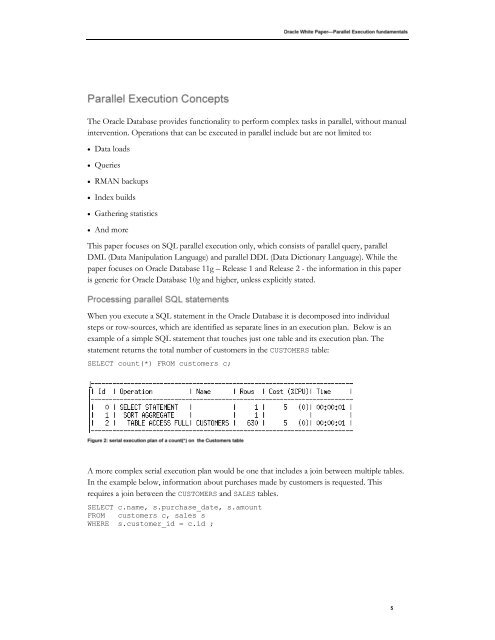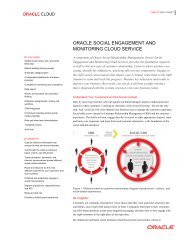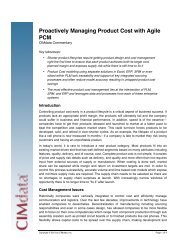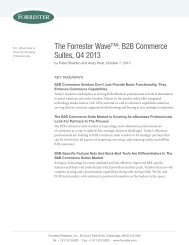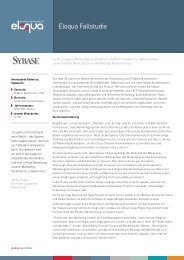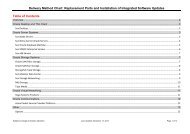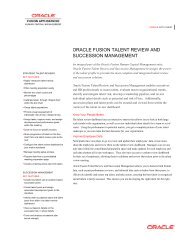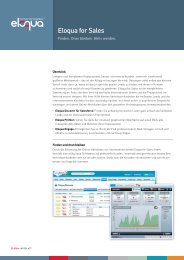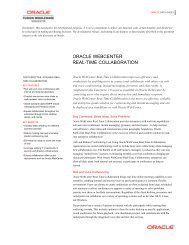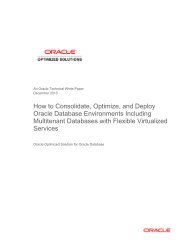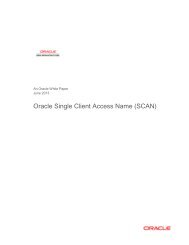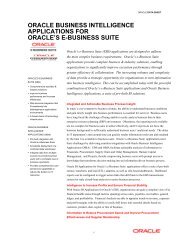Oracle Database Parallel Execution Fundamentals
Oracle Database Parallel Execution Fundamentals
Oracle Database Parallel Execution Fundamentals
Create successful ePaper yourself
Turn your PDF publications into a flip-book with our unique Google optimized e-Paper software.
The <strong>Oracle</strong> <strong>Database</strong> provides functionality to perform complex tasks in parallel, without manual<br />
intervention. Operations that can be executed in parallel include but are not limited to:<br />
� Data loads<br />
� Queries<br />
� RMAN backups<br />
� Index builds<br />
� Gathering statistics<br />
� And more<br />
This paper focuses on SQL parallel execution only, which consists of parallel query, parallel<br />
DML (Data Manipulation Language) and parallel DDL (Data Dictionary Language). While the<br />
paper focuses on <strong>Oracle</strong> <strong>Database</strong> 11g – Release 1 and Release 2 - the information in this paper<br />
is generic for <strong>Oracle</strong> <strong>Database</strong> 10g and higher, unless explicitly stated.<br />
When you execute a SQL statement in the <strong>Oracle</strong> <strong>Database</strong> it is decomposed into individual<br />
steps or row-sources, which are identified as separate lines in an execution plan. Below is an<br />
example of a simple SQL statement that touches just one table and its execution plan. The<br />
statement returns the total number of customers in the CUSTOMERS table:<br />
SELECT count(*) FROM customers c;<br />
A more complex serial execution plan would be one that includes a join between multiple tables.<br />
In the example below, information about purchases made by customers is requested. This<br />
requires a join between the CUSTOMERS and SALES tables.<br />
SELECT c.name, s.purchase_date, s.amount<br />
FROM customers c, sales s<br />
WHERE s.customer_id = c.id ;<br />
5


